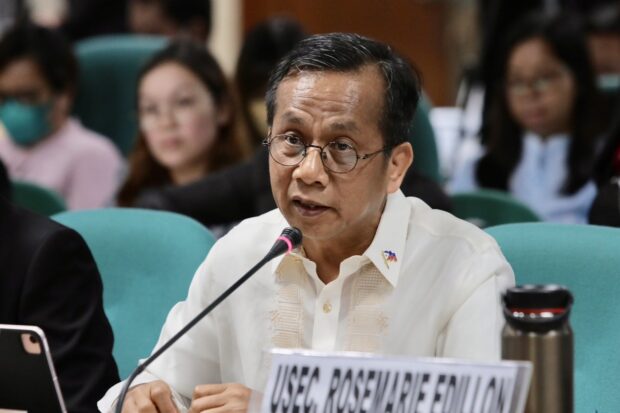Neda chief says tariff rates subject to periodic review

National Economic and Development Authority (Neda) Secretary Arsenio Balisacan said that lowered tariff rates may not reach until 2028 as originally planned in Executive Order No. 62 if there are “special changes” in the economic environment.
“Why not? It is already in the executive order signed by the President that there is a periodic review. If the situation changes, we must have [the government] that flexibility to re-examine its tools,” Balisacan said in an ambush interview Monday.
READ: Neda chief defends rice tariff cut
The Department of Agriculture last week said it is proposing a periodic review of tariffs on agricultural products instead of reduced rates until 2028, as well as recommending that the tariff cut should only last for about six months to one year only.
Balisacan stressed that tariffs need to be reviewed to make sure that tariff structures are still aligned with the government’s priorities.
Under the Customs Modernization and Tariff Act, a comprehensive tariff review is conducted every five years.
“Our tariff structure should be consistent with the rest of Association of Southeast Asian Nations (ASENA) because we are a member of the economic community,” he said.
READ: Marcos amends tariff schedule
When asked on what economic conditions could possibly adjust the government’s implementation of tariff reduction, Balisacan said it will depend on the movement of the world prices.
“If the world prices are about to fall, then you have to do what.. [how] you can adjust the tariff, that’s what many countries do just like what we do with oil prices too,” Balisacan said.
“You have to have a mechanism to reduce the domestic price to ensure that developments outside, especially these sharp increases, are not transmitted completely to our local economy. That way, we stabilize our prices and we don’t suffer from high inflation and we don’t suffer from high interest rates,” he added.
Last week, the government officially released the EO No. 62 which orders the tariff reduction on rice and other agricultural and industrial products until 2028.
Under the program, import tariffs on rice are slashed to 15 percent from 35 percent.
